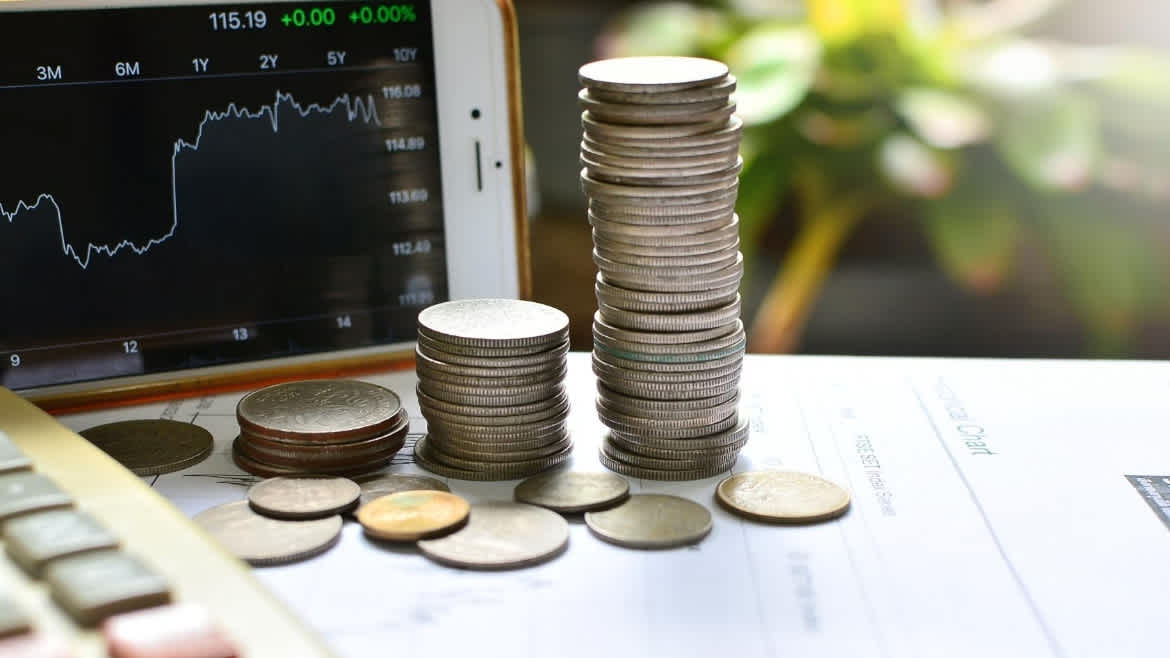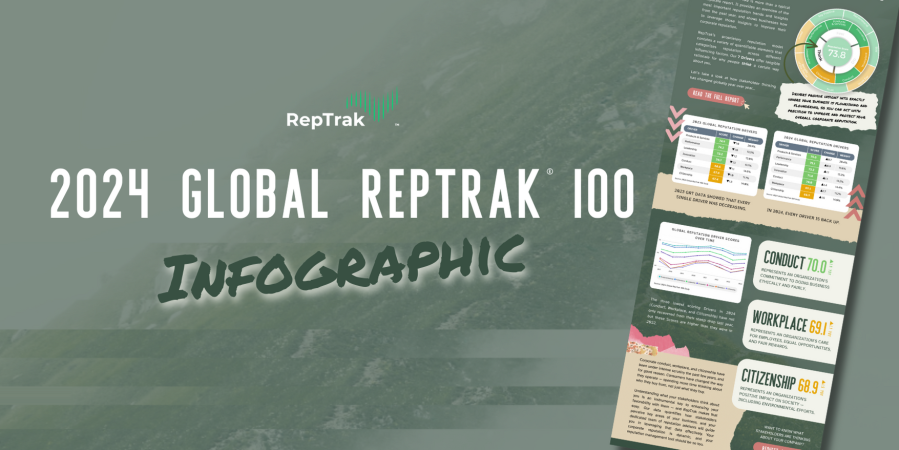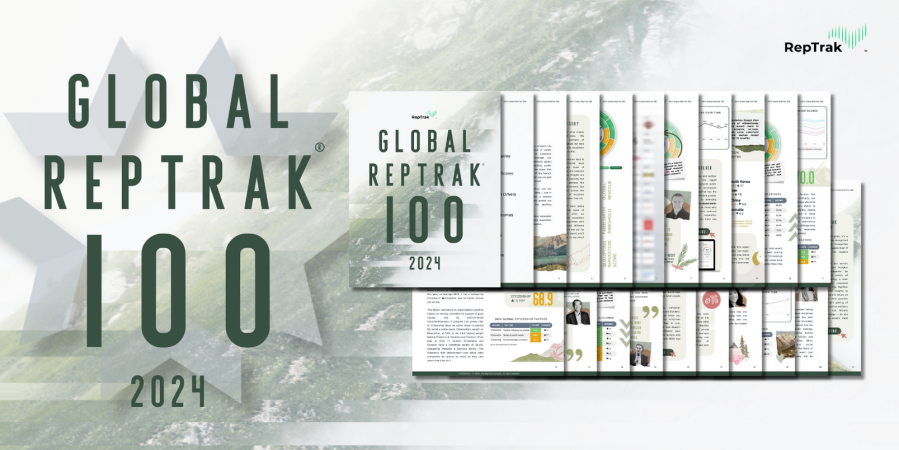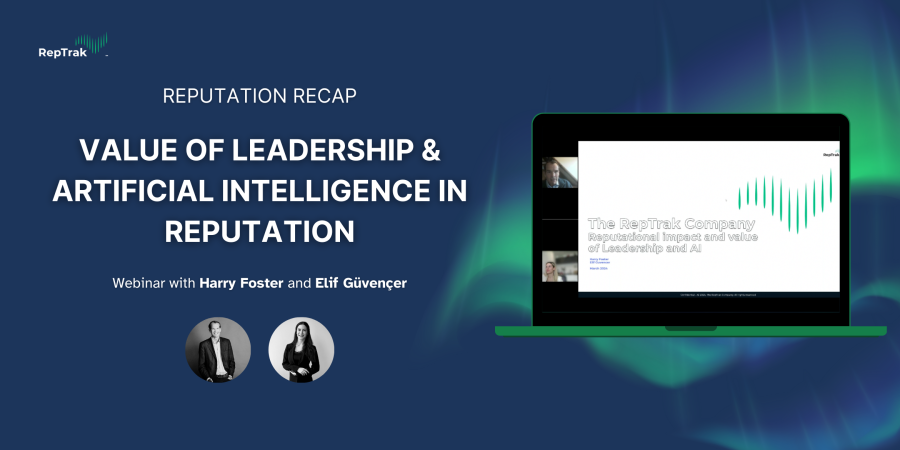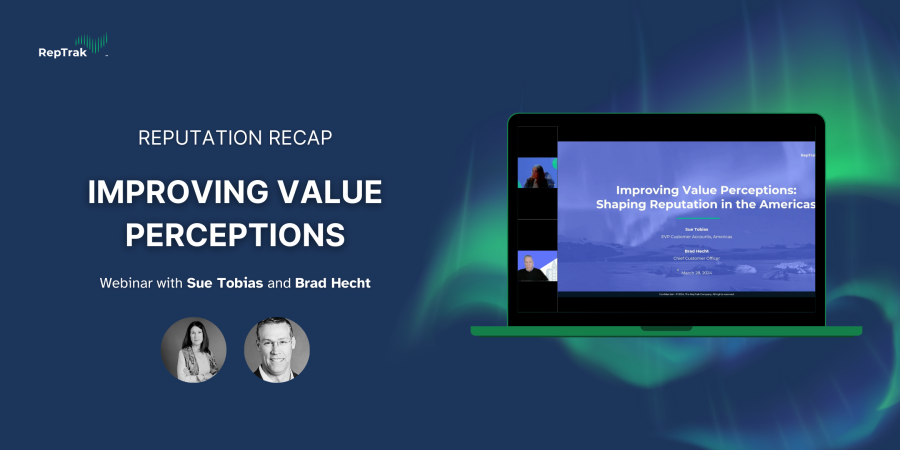Why Reputation Is Your Most Powerful Asset for Driving Business Impact
Blog Post12 Jun, 2020
You want consumers to select your product over your competitors’. You want the best talent to apply for a job with your company. You want the public to give you the benefit of doubt when they read a negative story about you on social media. You want politicians to give you license to operate so you can do business in the country. And you want the financial market to invest in your company. If you get all of this, your company will succeed.
What is the central element that drives all of this positive support? Your reputation. Reputation is the emotional connection people have with your company. Do they trust, admire, and respect you? Do they think you are delivering on the promises you are making to them as customers, employees, and investors? If they do, they will support you. If they don’t, they will boycott you and share negative views about you.
A massive power shift has happened over the past 10 years. Today, there are 9 billion people with a smart phone ready to tell the world about what your company is doing. So today, your reputation is more important than ever. In short: Reputation is the currency of tomorrow.
According to Lloyd’s of London and KPMG, intangible assets make up 80–85% of a company’s market value, and corporate reputation is the largest part of that. So companies need to proactively protect and build their reputation with key stakeholders.
Support from your stakeholders
Investing in your reputation pays off. The stronger your corporate reputation is, the more support you will get from stakeholders. From our 2020 Global RepTrak data, we can see that:
78% of consumers say they will buy from companies with an excellent reputation vs only 9% if the reputation is poor
75% of consumers would welcome companies with an excellent reputation to their local area vs only 10% for companies with a poor reputation
70% of consumers say they want to work for companies with an excellent reputation compared to only 11% for companies with a poor reputation
A shift from average to excellent reputation yields a 3x increase in customer advocacy
A shift from average to excellent reputation yields a 3x increase in willingness to invest in the company
The question then becomes, what does a company need to do to earn support from stakeholders? Among other things, it needs to be a company worthy of respect and trust, so the perception of that company by members of the informed general public is a positive one.
Companies with strong reputations leverage stakeholder support to outshine the competition and reap revenue and other financial rewards. And strong financial performance can, in turn, strengthen other aspects of companies’ reputation.
Impact on financial KPIs
Your reputation is not static. It evolves based on conversations about your company online and off, as a result of industry issues and actions from competitors, and your own communications efforts. To stay on track, you need to be actively monitoring stakeholder perception and making use of actionable insights to guide your decision-making. RepTrak integrates with your strategy so you can test the return on your activities and build trust and support with customers and other key stakeholders.
And the results are clear. Companies that manage their reputation have better financial performance:
A one-point increase in RepTrak: Reputation Score yields a 2.6% change in market cap
There is a 37% increase in financial stability for the most reputable vs. least reputable companies
The most reputable companies have a P/E ratio that is more than 3.4x higher than the least reputable companies
An excellent reputation can reduce the cost of capital by 87%
And since 2006, the RepTrak top 10 portfolio of the companies have outperformed the S&P 500 index by a factor of 2.5 times
So, the business case is clear. Now the question is: How do you build and protect your reputation? This starts with understanding what your reputation is today. How do you compare to industry rivals, and where are your risks and opportunities?
There’s money in reputation. You just have to know how to measure and manage it.
Are you ready to start managing your company’s reputation? Click here to request a demo of The RepTrak Program and see what kind of impact it can have on your business.
Kasper Ulf Nielsen Chief Strategy Officer The RepTrak Company
